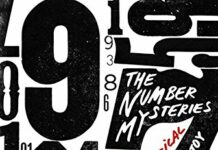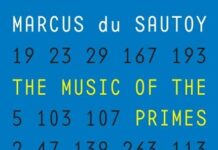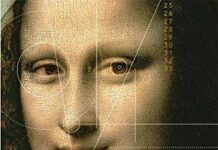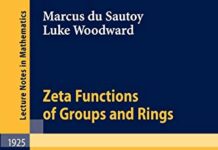
Ebook Info
- Published: 2016
- Number of pages: 449 pages
- Format: PDF
- File Size: 5.56 MB
- Authors: Marcus Du Sautoy
Description
‘Brilliant and fascinating. No one is better at making the recondite accessible and exciting’ Bill BrysonBritain’s most famous mathematician takes us to the edge of knowledge to show us what we cannot know.Is the universe infinite?Do we know what happened before the Big Bang?Where is human consciousness located in the brain?And are there more undiscovered particles out there, beyond the Higgs boson?In the modern world, science is king: weekly headlines proclaim the latest scientific breakthroughs and numerous mathematical problems, once indecipherable, have now been solved. But are there limits to what we can discover about our physical universe?In this very personal journey to the edges of knowledge, Marcus du Sautoy investigates how leading experts in fields from quantum physics and cosmology, to sensory perception and neuroscience, have articulated the current lie of the land. In doing so, he travels to the very boundaries of understanding, questioning contradictory stories and consulting cutting edge data.Is it possible that we will one day know everything? Or are there fields of research that will always lie beyond the bounds of human comprehension? And if so, how do we cope with living in a universe where there are things that will forever transcend our understanding?In What We Cannot Know, Marcus du Sautoy leads us on a thought-provoking expedition to the furthest reaches of modern science. Prepare to be taken to the edge of knowledge to find out if there’s anything we truly cannot know.
User’s Reviews
Reviews from Amazon users which were colected at the time this book was published on the website:
⭐As Martin van Creveld puts it, this is a very interesting book. Especially, for the great scientific erudition of whoever writes it. Marcus du Sautoy is a popularizer and professor of mathematics at the University of Oxford, known for being the host of the BBC’s documentary series “The Code”, about basic concepts of the history of the use and meaning of numbers.However, turning the pages it becomes clear that Sautoy eludes or ignores a great truth, without which not only science, but everything that exists lacks explanation and meaning. What is the existence of an Immobile Prime Mover, of an Uncaused Cause, etc. And whom many of us simply call God. For without the presence of him all scientific explanation falls short.Well, as stated by Albert Einstein, a great scientist and often cited by the author. Who claimed to believe in a God who shows himself through the order and harmony of universal laws.Sautoy is an atheist, but he does not make it explicit in his text. Which is fine, you don’t have to. But, it is good that the readers of him know it, in order to save us several superfluous pages, full of doubts and stares into the void.
⭐Most of the text summaries, in popular science style, what we know, mainly in physics. It only then points at what we don’t know yet, or what we cannot know in principle, due to limitations presented by chaos theory, Heisenberg principle of uncertainty, singularity, etc. On top of physics the book surveys what neuroscientists and mathematicians know (and don’t know) about consciousness, the consistency of mathematics (Gödel incompleteness theorem) and infinity. The book is interesting and clear. Note: in the Kindle version the formulas are displayed in a small and faint print that cannot be enlarged. Very inconvenient.
⭐We are gifted to understand our limits, but no more. Mathematic can show us science is not everything, but there is no other way to learn the truth. Even mathematical logic have limits at self referal and infinity.Thank you, Sautoy. I found in your book what I have long been looking for, a justification of my belief. A very nice journey to the edges of human knowledge.
⭐Reading this book is like sitting down with a gifted thinker and listening to his stories about exploring the brilliant success and remaining mysteries of modern physics and logic. It is entertaining and informative even if you know the issues involved, and can be appreciated even if they are new to you.
⭐Excellent reading. It is like bringing mathematics into everyday life.
⭐well written and interesting
⭐Muy simpatico…’ Every quote, each literary reference contained within each ‘edge’ effectively outlines my own epistemological journey – very well-written!!!
⭐Excellent book.
⭐Take one. There is a Paul Whitehouse character in the Fast Show, called “Brilliant Kid” who wanders round a variety of landscapes exclaiming “Everything is brilliant”. Reading this book made me want to do the same thing.Take two. There is a strand of speculative fiction, of which China Mieville is a leading proponent, referred to as the “New Weird”. This book suggests that they haven’t even got close to emulating the actual weirdness of the universe around us.The central premise of the book is that author Marcus du Sautoy is seeking to understand the limits of what we know, to stand at the boundary of human knowledge and gaze into the abyss of what we don’t know. Is it infinite, or are we close to the other side, will it be possible to understand everything?While he does indeed ponder these questions, the real meat of the book, and what makes it awe inspiring, compelling, thrilling, is his exploration of what lies on this side of the boundary, a lot of the time, only just on this side.The book is divided into seven sections, referred to by du Sautoy as “edges” (of knowledge or understanding). These are, in terms of the underlying themes:-Probability, chaos theory and fractals. Unknown outcomes from a fully defined starting position.Particle physics – can we know if there is another layer of reality below the current understanding of the fundamental building blocks of the universe.Quantum mechanics. This is, of course where things start getting seriously weird. In a quantum universe particles appear out of nothing. Combining Heisenberg’s uncertainty principle with the speed of light being an absolute speed limit on the universe seems to imply that space is granular not continuous. Particles on opposite sides of the universe seem to know what each other are doing.Relativity, and can we know whether the universe is finite or infinite.More Relativity, and the nature of time.What is consciousness.Finally, and as a person with a degree in hard sums, I was waiting for this, Gödel’s incompleteness theorem which basically states that either a mathematical system will contradict itself or it will contain statements which can neither be proved or disproved. Du Sautoy prepares the ground for this right at the start of the book by rehabilitating Donald Rumsfeldt’s words, though not the man himself. There are indeed known unknowns etc etc. What I wasn’t ready for is the thought that just as geometry has stepped beyond Euclid, so the prospect has been raised that there may be different systems of mathematics. Just wow!!The only niggle I have with what is a thrilling (and I genuinely mean that about this science book), engaging, mind massaging book is both slightly surprising and, with a little thought, entirely predictable. Du Sautoy is at his hardest to follow when he is talking about his own subject, mathematics. It is as if he finds it easier to understand the lay reader’s needs when he is not on his own ground.That said, this is a book in which the author shows he is admirably meeting the requirements of his role as Siminyoni Chair for the Public Understanding of Science.
⭐This a very oblique work and, for me, spends far too many words revisiting history that most people reading this book will be totally familiar with. As a result, its structure is unhelpful, and the pace leaden. the device of constantly referring back to the chances of knowing what a thrown die will show reinforces the feeling that the reader is being talked down to. There’s also a propaganda element. The author, a mathematician he reminds us regularly, has a particular take on the relationship between mathematics and science, and isn’t shy about promoting this view, often adding nothing to the apparent purpose of the book. I have read over half, but I don’t think I’ll finish it. Should I have given it two stars, I wonder?
⭐The book explores a wide range of scientific and philosophical fields including Chaos Theory, Particle Physics, Cosmology and Neuroscience, and poses questions about what we can know or whether certain questions hold any meaning at all. The author is a mathematician and excellent populariser of scientific ideas. He also discusses the issues on the edge of knowability with some leading thinkers – the dialogues are some of the most accessible and memorable parts of the book. I was familiar with most of the science and maths, but even as a trained scientist I struggled with being dragged through the entire history of each of the disciplines investigated. I felt this was another book in need of a strong editor. I was better engaged after 6 chapters, but I know several well-read members of my Book Group who didn’t make it that far. But if you can endure the verbosity (and some repetition) the philosophical conclusions and discussion are well worth it. Even if, like me, you may strongly disagree with some of the more recent speculative cutting edges of science and mathematics (e.g. the Mathematical Universe Hypothesis (MUH) or Multiple Universe view of Cosmology) there is a great deal to think over. There is an excellent Further Reading section, which somehow leaves out some of the books and authors which are mentioned or alluded to in the text, including Julian Jaynes and Douglas Hofstedter. Hard work in places, but well worth it!
⭐This is a most intriguing book which starts and finshes with the roll of a dice. And if he does come to any definitive conclusions, and that in itself is a delightfully debatable point, one of them is that we are far more likely to understand what is happening at the outer edges of our currently known Universe than we are to understand what is happening when the dice are rolled – and how and why. I would have given it a higher rating but for the fact that he seems to meander a bit too much for my liking towards the end of the book about God. There is a linkage to the strands of thought in the book but I am not clear that it adds an awful lot. Other than that, an excellent and worthwhile read.
⭐This is the first book I have read by this author and he doesn’t disappoint. He’s a mathematician so there is a fair sprinkling of equations but don’t let that put you off (says me with a Grade 2 CSE in maths!). It is a very interesting read and provides a great background to how we got to where we are today in modern science. I am half way through and will complete the book but I like to read a few pages at bedtime and then go to sleep thinking about what I have read. if you are curious and want to know – this is a good place to start!
Keywords
Free Download What We Cannot Know: Explorations at the Edge of Knowledge in PDF format
What We Cannot Know: Explorations at the Edge of Knowledge PDF Free Download
Download What We Cannot Know: Explorations at the Edge of Knowledge 2016 PDF Free
What We Cannot Know: Explorations at the Edge of Knowledge 2016 PDF Free Download
Download What We Cannot Know: Explorations at the Edge of Knowledge PDF
Free Download Ebook What We Cannot Know: Explorations at the Edge of Knowledge



